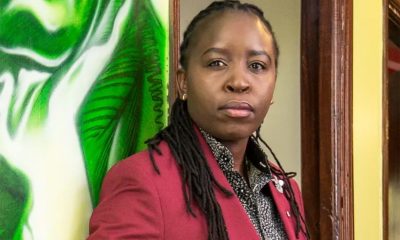World
Gay Nigerian priest makes religion serve LGBTQ people
Rev. Jide Macaulay founded House of Rainbow
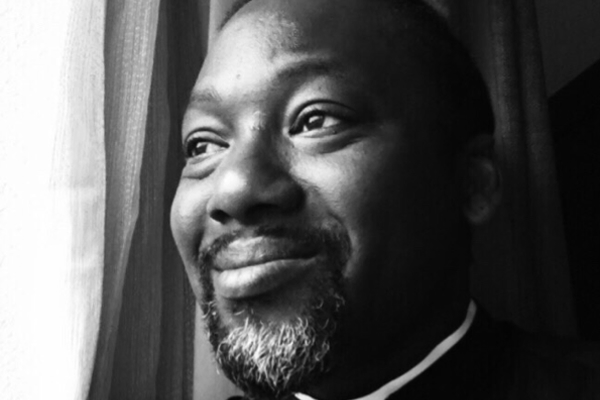
It is impossible to speak of queer identity and culture without acknowledging the important role religion has played in shaping it throughout history. Whether it’s Pope Francis praising the work an American priest has done to affirm LGBTQ identity, or a Republican legislator rebuking the existence of transgender people by invoking scripture from the Bible, religion and spirituality unquestionably influence conversations about sexual identity in the U.S. and how American society would like for people to manifest their sexuality.
A significant portion of LGBTQ people in the U.S. are religious.
A study the UCLA School of Law’s Williams Institute conducted in 2020 found that 5.3 million LGBTQ adults are religious with almost half of this metric identifying as “highly religious.” Forty percent of those between ages 18 and 35 are religious, and 65 percent percent of those over 65 identify as religious as well. In addition, 71 percent of Black LGBTQ adults in the U.S. are religious.
The Washington Blade recently spoke with Rev. Jide Macaulay, founder and CEO of the London-based House of Rainbow CIC, to talk about his work as a gay Black African Christian priest.
Macaulay was born in London and grew up in Ikeja, the boisterous capital of Nigeria’s Lagos State. He was born into a religious family to parents who he described to the Blade during a 2017 interview as “very dedicated Christians.” His father was one of Nigeria’s leading theologians, so Macaulay’s upbringing was naturally Christian-centric, with him being involved in the church from a young age.
As a budding adult, Macaulay pursued theology as a profession and became an ordained minister in 1998 after training with his father. After a two-year hiatus from the church, he joined the Metropolitan Community Church in London to study theology and later joined its congregation as a minister in 2003. Macaulay says it was there that he became confident in his understanding that “God loves gay people regardless of all these messages of it being a taboo or abomination.”
Sheathed with this conviction, Macaulay moved back to Nigeria to create an environment that mimics that which he had experienced at the Metropolitan Community Church.
“It became important to me to go to Nigeria to create the same space and tell LGBTQ people that ‘God loves you just the way you are,’” says Macaulay. “I embodied a lot of the spirit of the human rights church that came out of the origin of the Metropolitan Community Church.”
Macaulay started House of Rainbow under this ideology on Sept. 2, 2006. This weekly gathering of LGBTQ Christians initially began with 34 congregants, but the congregation grew rapidly to a point where Macaulay “didn’t know what to do with all the people.” He says the growth “perplexed” him as he didn’t realize that House of Rainbow was so popular.
House of Rainbow encountered problems that emanated from operating in a country with virulent homophobic laws, despite its popularity. Many congregants were physically attacked for identifying as queer, and Macaulay recalls individuals emerging to church with broken noses and arms. The media also caught wind of House of Rainbow’s weekly gatherings and chaos ensued.
The culmination of these events forced Macaulay to leave Nigeria after two years. House of Rainbow remained steadfast with its mission to create a community for LGBTQ Christians and soldiered on for a couple of more years before it eventually dissolved.
“It’s unfortunate, now, that as I speak to you we do not have a House of Rainbow community in Nigeria,” says Macaulay. “We still have people connected [to the community], but we don’t have a physical presence or anyone leading it.”
House of Rainbow’s reach has nevertheless now become global, with communities established in 22 countries. The majority of them are in Africa.
‘Homosexuality is not a sin; it is who we are’
The crux of Macaulay’s ideology centers on inclusion and acceptance. He creates a space at House of Rainbow where LGBTQ individuals can not only gather in community, but can also feel seen and recognized as meaningful members and contributors to Christianity
“The important thing [that people need to understand] is that as a minister of the gospel of Christ, I want every LGBTQ person to make [it to] heaven,” says Macaulay. “I want them to be on a path towards salvation and redemption.”
“This whole language that if you are gay, you are destined for hell and eternal damnation is so wrong. That is even abusive in itself,” adds Macaulay.
He further invokes a popular scripture that loosely states, “For all have sinned and fallen short of the glory of God.”
This scripture is a part of what homophobic Christians use to denounce queerness. Macaulay, nevertheless emphasizes that there is a lack of complete understanding of what the scripture truly communicates.
“[The scripture] didn’t say that anyone is going to hell. It said that we have all sinned and fallen short of the glory of God,” says Macaulay. “Having said that, it is important to understand that homosexuality is not a sin; it is who we are.”
Macaulay’s work is therefore enmeshed in the need to fight for social justice causes. He aims to use the church as a platform to bring awareness to and fight for all iterations of LGBTQ rights. Whether it be racism, sexism, or classism, Macaulay aims to “be like Jesus” and emulate his unwavering passion to uplift those at the bottom of society’s hierarchy.
“It’s inconceivable to think that any religious space wouldn’t be a platform for social justice. Jesus Christ was about social justice,” says Macaulay. “Even the Civil Rights Movement in America had the church fighting injustices relating to racism.”
Macaulay stresses that the church needs to “do what is right” and stand up for the rights of LGBTQ people.
“In the Bible in Micah 6:18, it says, ‘What does the Lord require of you but to do justice? To love kindness and work in humility with your God,” says Macaulay. “Therefore, Christian leaders need to have a strong understanding of justice.”
When reflecting on the current state of religion, its diversion from and/or weak approach towards social justice, and also its complicity in oppressing minority groups, Macaulay says, “Jesus Christ would definitely be mad.”
Can you be a gay African and Christian?
Prior to being colonized by European countries, many African cultures had relaxed attitudes towards sexuality and gender. The Shona in Zimbabwe, Pangwe in Cameroon, Igbo in Nigeria and other African tribes all permitted queer existence without any negative repercussions.
The expansion of European global influence brought with it homophobic laws, which were largely enacted under the pretense of “Christian values,” that forced African countries to institutionalize queerphobia, which has now become an undeniable legacy of colonialism on the continent.
That colonialism introduced African populations to Christianity is not an uncommon sentiment among queer Africans and Africans in general. Hence, it is not uncommon to find LGBTQ Africans who denounce Christianity not only because of its association with the racism that fueled European occupation of the continent, but also its functioning as a tool that erased what many of them nostalgically view as a queer-affirming past tainted by the arrival of the white man.
Macaulay both believes and shuns this. He acknowledges that colonialism did participate in the erasure of queer acceptance in African cultures, however, the concept of Christianity being “unAfrican” is fallacious.
He asserts that African and Black African Christians existed before colonialism, and thus, the notion that Christianity is the “white man’s religion” is a false notion.
“Christianity was present in pre-colonial Africa,” says Macaulay. “In the Bible there are numerous references to Africa, including Egypt and Ethiopia where important biblical events happened, [for example], the story of the Israelites leaving Egypt in search of the promised land.”
Macaulay, because of this, spotlights the need for religion to be decolonized.
By reframing how Christians conceive of religion, from unlearning the notion that Jesus is white to acknowledging the existence of Black people in the Bible, one can have a more wholesome and truthful interaction with Christianity.
Also, this will allow for queer African Christians to exist in their queer communities comfortably as Macaulay states that there’s a need for them to occupy space in the community as proudly religious people without bearing the shame that is cast on them by what seems to be an agnostic-leaning landscape.
Lil Nas X and ‘going to hell’
Lil Nas X on March 26 released a single titled “Call Me By Your Name” which garnered massive attention for both its musical mastery through a catchy hook and its depiction of Black queerness. The accompanying video further dramatized the story by drawing from Christian visual imagery of heaven and hell, and God and the Devil.
The song’s video features scenes of Lil Nas X in sensual form, including him giving a caricature of Satan a lap dance. This particularly angered many religious groups, including Christian allies of the LGBTQ community who USA Today reported criticized the video for “going too far to prove a point.’”
Macaulay is a fan of Lil Nas X, who he dubs as his “favorite artist of all time right now, after Michael Jackson,” and for him, Lil Nas X’s discography extends beyond simple displays of queer identity.
Macaulay has one thought at the forefront of his mind when he looks at “Call Me By Your Name”: The concept of hell is abusive and a form of scaremongering.
“The concept of hell is propaganda. It is almost fictional,” says Macaulay. “The idea that if you do something wrong you will go to hell, is wrong in and of itself. Homosexuality was never wrong. Homophobia is wrong.”

He further underlines that God made gay people, and supports this with a scripture from the book of Philippians which loosely points to God’s omnipotent knowledge before, during, and after one’s life on earth.
Macaulay says that people should listen to Lil Nas X’s pain, and not rebuke him, because he speaks for millions of gay people.
“The reality is that when you tell people that they are going to hell, you are excommunicating them from living their own lives appropriately,” says Macaulay.
Macaulay nonetheless has a deep admiration for today’s younger generations, especially because they refuse to align themselves with the bigotry that ravages societal discourse about identity.
“I’m really glad for the young people that have stepped out. They are fighting back. They are the warriors and heroes saying, ‘Enough is enough. I’m proud, queer and African,’” says Macaulay. “I think that the sad reality for the Christian community is that they’re missing out on the gift and talents of the queer community [by being exclusive].”
Macaulay and House of Rainbow have created “GAYMoment,” a weekly online service that centers queer worship. Each Sunday, queer people from around the world gather online for prayer, sermon, and testimonies, all provided by queer people.
Macaulay champions sex positivity
Discussing sex and sexual identity is a topic from which Macaulay does not shy away. In fact, it is one that although he is a religious leader, he also approaches as a person of faith.
Macaulay, who lives with HIV, is a proponent of sex positivity.
“I think it’s important for every adult human being to experience a sexual relationship that is appropriate, suitable, and consensual,” says Macaulay. “It is important that everyone in their lifetime engages positively with sex, particularly adults. I don’t recommend it for minors though.”
Macaulay is also a vocal advocate for having honest and open conversations about sex and sexuality. He gives credence to the fact that society needs to address the lack of comprehensive sex education.
“Countries that have [addressed sex education] are doing better. They have less cases of STIs and teenage pregnancies,” says Macaulay. “Also, students get more opportunities to know more about various sexulities.”
Sex education should be age-appropriate and geared towards protecting children, minors, and vulnerable adults, says Macaulay. He believes that children should know about their bodies and be armed with the confidence to talk to adults when their boundaries are violated.
Thus, by keeping advocacy as the focal point, Macaulay, who is affectionately known as “Mama Jide” functions in a quintessential role in the queer community, one similar to that of house mothers in ballroom culture who outstretch themselves to the limits to ensure that their children not only have their basic needs, but also reach a point of complete self-actualization and realization of their purpose in life.

Dominica’s High Court of Justice on Monday struck down provisions of a law that criminalized consensual same-sex sexual relations.
A gay man who remains anonymous in 2019 challenged sections of the country’s Sexual Offenses Act that criminalized anal sex and “gross indecency” with up to 10 years and 12 years in prison respectively. The plaintiff argued the provisions violated his constitutional rights.
The Dominica Equality and Sexual Expression Association and the Eastern Caribbean Alliance for Diversity and Equality, a group that advocates for LGBTQ and intersex rights in the region, in a press release noted the court in its ruling affirmed “the criminalization of consensual same-sex activity between adults is unconstitutional.” The groups added Justice Kimberly Cenac-Phulgence “declared that the laws commonly known as buggery and gross indecency laws, contravenes the constitution of the Commonwealth of Dominica, namely the right to liberty, freedom of expression, and protection of personal privacy.”
“It is long past time that the dignity and dreams of all Dominicans were recognized,” said DESEA Executive Director Sylvester Jno Baptiste in the press release. “We are all God’s children, and he loves us all equally. Laws that treat some Dominicans as less than others, have no place in a just society.”
Dominica is a former British colony that is located between Guadeloupe and Martinique in the Lesser Antilles.
Antigua and Barbuda, St. Kitts and Nevis, Barbados, and Trinidad and Tobago in recent years have decriminalized consensual same-sex sexual relations.
The Inter-American Commission on Human Rights in 2021 issued a decision that said Jamaica must repeal its colonial-era sodomy law. The country’s Supreme Court last year ruled against a gay man who challenged it.
A judge on St. Vincent and the Grenadines’s top court in February dismissed two cases that challenged the country’s sodomy laws.
“Decriminalization helps create an environment where LGBTQ individuals can live openly without fear of persecution, enabling them to access health care, education, and employment without facing discrimination,” said Outright Executive Director Maria Sjödin on Monday in response to the Dominica ruling. “The repeal of these discriminatory laws is a testament to the tireless efforts of activists, advocates, and allies who have long fought for justice and equality. It is a victory for human rights and a significant milestone in the ongoing struggle for LGBTQ rights in the Caribbean.”
Africa
Upcoming Ugandan Census will not count intersex people
Advocacy group report documents rampant discrimination, marginalization

Uganda’s national Census next month will not count intersex people.
The revelation about the exclusion of intersex Ugandans in the 9-day Census exercise that will begin on May 10 has been confirmed to the Washington Blade by the head of Uganda’s Bureau of Statistics.
UBOS Executive Director Chris Mukiza in response to the Blade’s questions on the issue said the agency has “no business with intersex.”
Their counting could have made Uganda the second African country and the third globally after Australia and Kenya to collect an intersex person’s data in a Census.
Kenya’s 2019 Census determined there were more than 1,500 intersex people in the country.
Uganda had a population of 34.8 million, according to the country’s last Census that took place in 2014.
Intersex people in Uganda are among marginalized groups, subject to stigma and discrimination. The government has yet to recognize them as the third sex and consider them among other minority groups, such as people with disabilities, who enjoy special treatment.
Intersex people cannot be exclusively categorized as male or female for having a biological congenital condition with unique sex characteristics due to inherent and mixed anatomical, hormonal, gonadal, or chromosomal patterns that could be apparent before, at birth, in childhood, puberty, or adulthood.
Mukiza’s position of excluding intersex people in the Census, however, comes amid the prime minister’s office’s demands for inclusivity and equality for all the population. (The Constitutional Court on April 3 refused to “nullify the Anti-Homosexuality Act in its totality.”)
“We recognize that much work remains to be done particularly in addressing the needs of the marginalized and vulnerable communities, promoting inclusive economic growth, and combating climate change,” said Dunstan Balaba, the permanent secretary in the prime minister’s office.
Balaba spoke on April 18 during the National Population and Housing Census prayer breakfast meeting the UBOS convened. Religious leaders and other stakeholders attended it.
President Yoweri Museveni has noted that data from the country’s sixth national Census will be crucial towards achieving the nation’s Vision 2040 and help the government, non-governmental organizations, and donors in providing services to the diverse population.
“It will also provide the basis for planning the provision of social services such as education, health, and transport, among others at the national and local level,” Museveni said as he urged citizens to fully support the Census and provide accurate information.
Uganda has an intersex rights organization, “Support Initiative for People with Atypical Sex Development (SIPD),” which activist Julius Kaggwa founded in 2008 with the support of groups that advocate for children, women, and other marginalized populations.
Some of SIPD’s work as a non-profit, grassroots organization includes community outreach and engagement, sharing reliable information with the society for the protection of intersex people’s rights, and championing the need for organized medical and psychological support.
The organization, through its numerous reports, has decried human rights violations against intersex people that include surgery without consent, discrimination in homes, schools and medical centers, parents abandoning intersex children, and stigma due to lack of legal protection by the government.
Uganda’s Registration of Births and Deaths Act allows a parent or guardian of a child under the age of 21 to change the name or sex at the local registration office. The SIPD, however, maintains this law is discriminatory to intersex people over 21 who want to change their sex characteristics, and want parliament to repeal it.
The intersex rights organization wants the Health Ministry to establish a central registry to register intersex children after they’re born in order to receive support in terms of healthcare, social and legal by the government and other stakeholders as they grow up.
SIPD particularly wants the government to enact a policy that would allow a gender-neutral marker on birth certificates for intersex children to ease any change of sex in the future. The organization also wants the government, through the Education Ministry, to adopt a curriculum that also considers intersex issues in schools and creates a friendly environment for intersex children to learn and graduate like their non-intersex peers.
These demands follow SIPD’s findings that disclosed many intersex children were dropping out of school because of the stigma and discrimination they suffered. The organization has further called on the public-funded Uganda Human Rights Commission to live up to its constitutional mandates of defending human rights by leading the promotion and protection of the rights of intersex people across the country.
SIPD has also challenged religious leaders, who play a key role in Ugandan society and are influential at the local and national level, to promote acceptance of intersex people and to end discrimination against them.
World
Out in the World: LGBTQ news from Europe and Asia
Swedish lawmakers last week passed a sweeping gender-recognition law

IRAQ
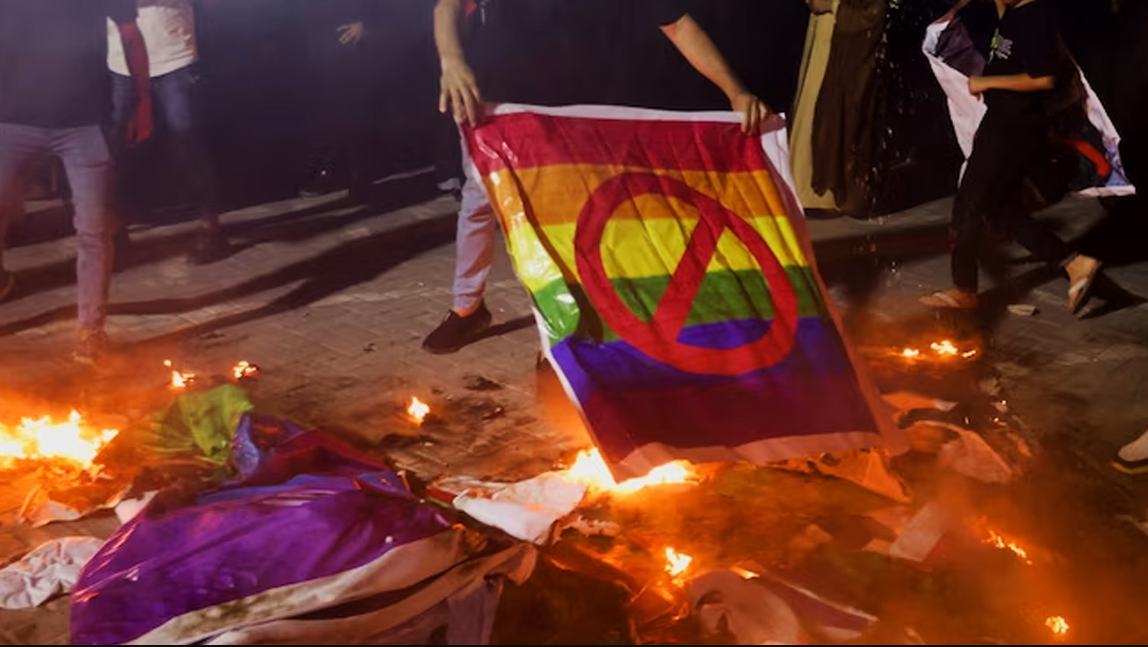
A bill is being discussed in the Iraqi parliament that would introduce the death penalty or life in prison for same-sex relations, Reuters reported this week. Western diplomats have warned Iraqi lawmakers that if passed the law could have serious consequences for Iraq’s political and economic ties.
According to Reuters the measure imposes a sentence of life imprisonment or the death penalty for anyone engaging in same-sex relations or anyone who swaps their wife with someone else’s for sexual purposes. Lawmakers postponed voting over time constraints and that some disagreements remained over proposed amendments
The law contains a provision that echoes the Russian law banning the promotion of homosexuality and violations are punishable by at least seven years in prison.
UNITED KINGDOM
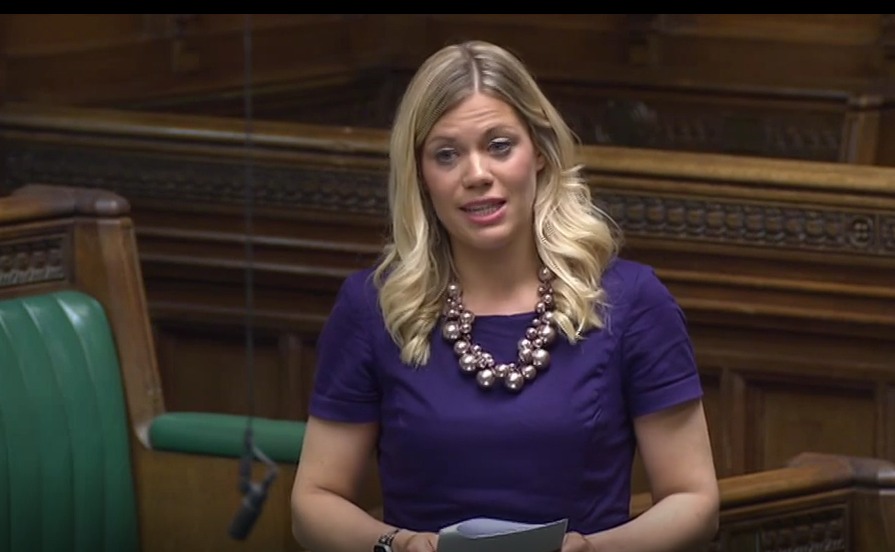
Miriam Cates, the Tory MP for Penistone and Stocksbridge in South Yorkshire, took aim this week against a proposal to set up voluntary “gender and sexual orientation alliance groups” in Scottish schools that opt in.
Speaking to GB News, Cates said: “These are children who have not been through puberty and they don’t have sexual feelings. Asking them if they are straight or gay is not only ridiculous, it is also disturbing. Why would an adult in a school be asking a small child about their sexual feelings?” She added that the scheme is “very, very worrying” and has been “dressed up to be seen as a diversity agenda, an inclusivity agenda.”
The Tory MP has a long record of anti-LGBTQ remarks and activism. In January 2023, after the government of Prime Minister Rishi Sunak announced its unprecedented decision to use a Section 35 order under the Scotland Act to prevent the Scottish bill from becoming law, addressing the House of Commons, Cates said she believed it was “absolutely right” for the Tory government to block Scotland’s gender reform law.
PinkNewsUK reported Cates then claimed the bill would make it “vastly easier for a predator to gain access to children” and alleged it would have a “chilling effect” on single-sex spaces.
PinkNewsUK also noted that the Tory MP said that this latest push to encourage schools to install gender-neutral bathrooms, and hold meetings about LGBTQ inclusion, among other initiatives in Scotland was little more than “adults with a particular ideology are pushing that ideology on children, with damaging effects.”
A Scottish government spokesperson told the Telegraph: “We are committed to doing everything we can to make Scotland the best place to grow up for LGBTQI+ young people.” The spokesperson added: “This includes funding LGBT Youth Scotland to deliver a range of projects, such as the LGBT Charter program.”
SWEDEN
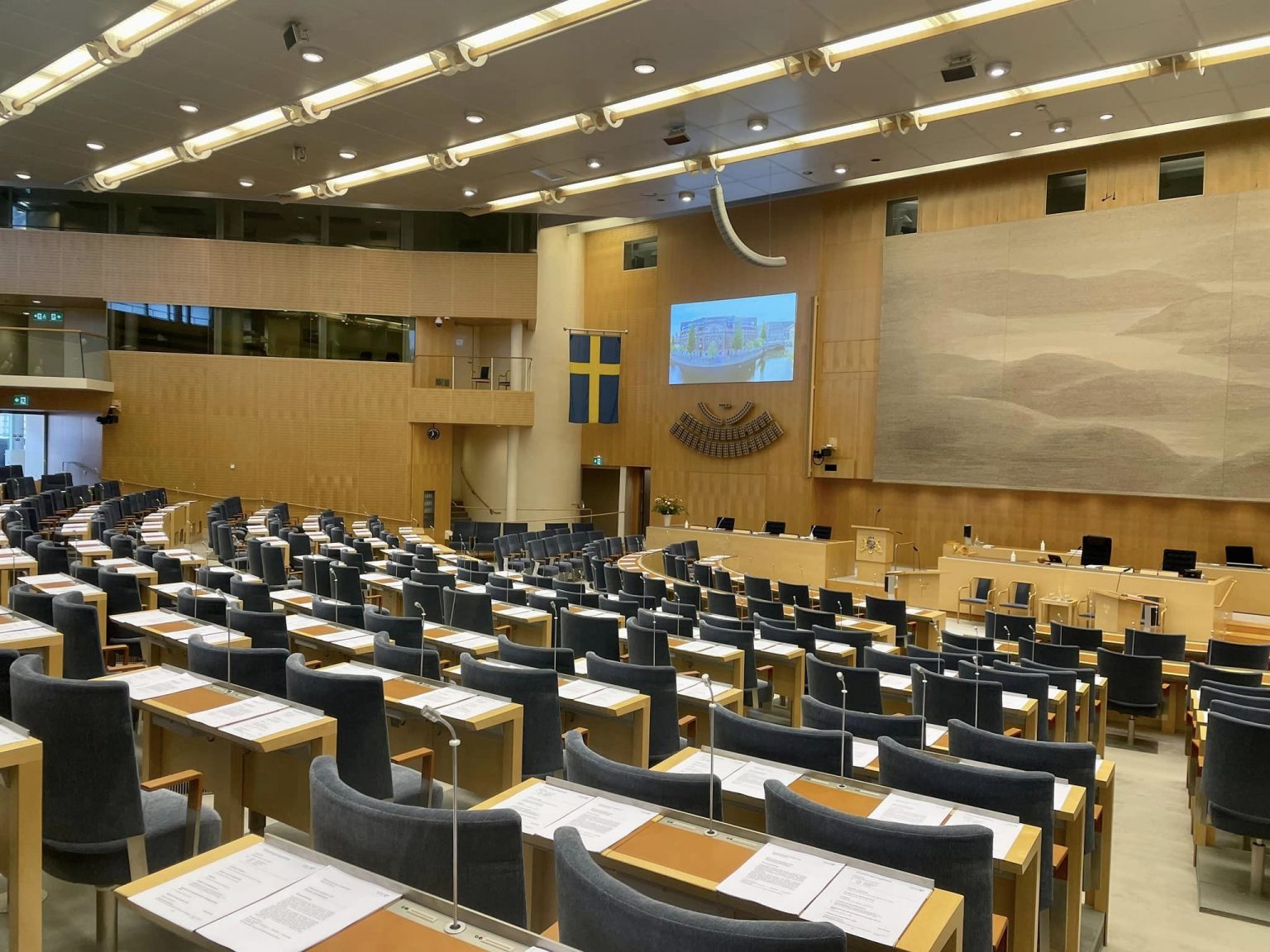
The Swedish parliament has passed a sweeping gender-recognition law that eases the process for transgender people to update their legal gender. The law also lowers the minimum age for a gender change from 18 to 16, although minors will be required to have the consent of their parents, a doctor, and the National Board of Welfare.
The Swedish Parliament adopted the law in a 234-94 vote on April 17, following six hours of tense debate. The law will come into effect next July.
The law was supported by the Moderate Party, which is the largest party in the governing coalition, as well as several opposition parties. The bill was vehemently opposed by the Christian Democrats, which are part of the coalition, and the far-right Sweden Democrats, who are in allied with but not a part of the government.
Sweden became the first modern country to allow legal gender change back in 1972, but the process to do so was derided as cumbersome and dehumanizing. Trans people would be forced to live in their gender identity for at least two years before applying, they’d have to be single or divorce their spouse, and they’d have to first undergo sex reassignment surgery and sterilization.
Roughly 800 trans Swedes are believed to have undergone sterilization under this regime before the law was changed to remove that requirement in 2013. In 2018, parliament approved a compensation scheme that awarded up to 225,000 Swedish krone (approximately $27,000) to people forced to undergo sterilization.
But other countries have since leapfrogged Sweden in recognizing trans people’s right to gender self-determination. All of the other Nordic countries — Norway, Denmark, Iceland, and Finland — allow trans people to update their legal gender by simple self-declaration, as do New Zealand, Ireland, Spain, Portugal, Chile, Argentina, Brazil, as well as many states and provinces of Canada, Mexico, and the U.S.
The new law doesn’t give trans Swedes everything they had wanted. While the application process no longer requires a doctor’s diagnosis of gender dysphoria, a consultation with a doctor or psychologist is still required. Children under 16 are also prevented from changing their legal gender, even with parental consent.
The law also maintains a ban on gender-related surgeries on minors.
Moderate Party leader Ulf Kristersson says that the bill will be a big help for trans people in Sweden, pitting the law as a reasonable compromise .
“The vast majority of people in Sweden will never notice that the law changes. But for a number of people in an often vulnerable situation, the new law can make an important difference. Everyone should be able to respect that,” Kristersson wrote in the Expressen newspaper.
Lina Axelsson Kihlblom, a trans woman and former minister of education from 2021-2022, the change will protect trans people’s security.
“For transgender people, it makes a huge difference to one’s freedom, security, future and sense of respect from society. We who are actually affected therefore really want a modernization of the law,” she wrote in Expresssen.
“I was forcibly sterilized, aged 21. I also had to wait until I was almost 24 before my legal gender was corrected. For several years, I had risked my life by having to show ID documents that did not show what others or I myself saw. Threats, hatred and fear of the uncomprehending mob were there daily. These traumas give me an ‘experience’ that I reluctantly house within me every day, even though I have passed 50. No one else should have to handle it,” Kihlblom says.
CZECH REPUBLIC
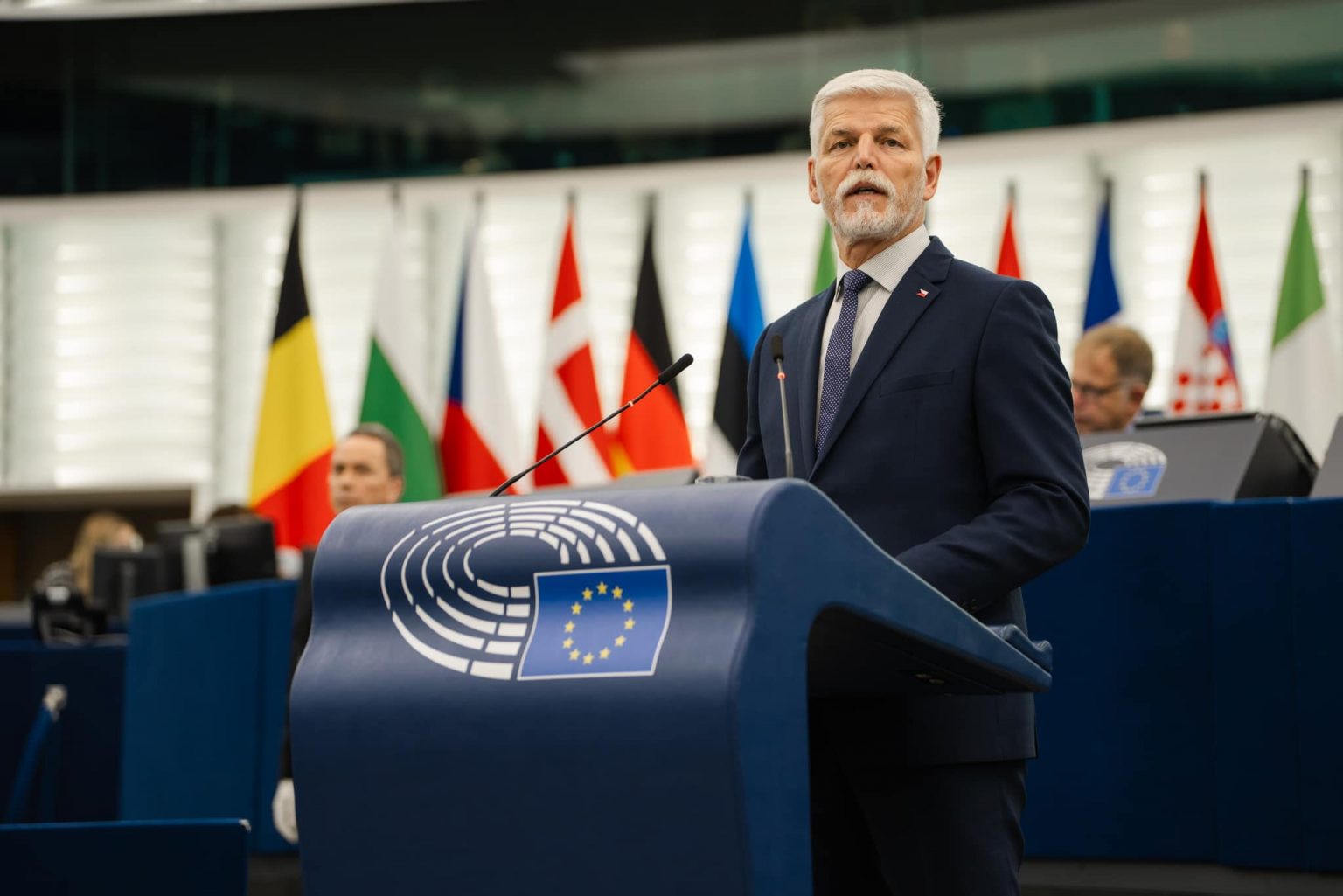
The Czech Senate ended debate on the same-sex partnership law without a vote on April 17, sending it on to President Petr Pavel, who is expected to sign it into law.
Czechia has allowed same-sex couples to enter “registered partnerships” since 2006, but these have always been seen as inferior to full marriage equality. Couples in registered partnerships were not given equal tax treatment, were not allowed to adopt children, and were not called “married” or treated as a family.
Under the new bill, “registered partnerships” will be replaced with “partnerships,” that are given all the rights of marriage except for the word “marriage,” and except for the right to jointly adopt children. The bill will come into effect in January 2025.
Going forward, couples in partnerships will have access to stepchild adoption, where one partner adopts the other’s biological child. Adopting a partner’s non-biological child will be possible but will require a court procedure.
Same-sex marriage has long been a political hot potato in Czechia. Polls consistently show the public supports same-sex marriage and adoption rights, but lawmakers are more conservative.
This partnership bill started as a same-sex marriage bill, but the lower house of parliament amended the bill to the current version when it passed it in February. There was some concern among lawmakers that there was not enough support in either house of parliament to pass full marriage equality.
There had been some hope among activists that the Senate would amend the bill to allow same-sex marriage, but that fizzled as several committees examined the bill and failed to adopt amendments.
“We were not afraid of the discussion in the Senate, it took place powerfully in the committees. But we didn’t want things that hurt people from the LGBTI+ community to be heard again,” Václav Láska, a senator from the Pirates party, told iDNES.cz. “There was a real risk that the law would fall under the table and the LGBTI+ community would get no rights at all. It’s a temporary compromise.”
The same-sex marriage advocacy group Jsme fér said the new partnerships bill maintains discrimination against gay people and their children.
“It does not give them the same rights as other citizens. It disadvantages children only according to the relational orientation of those who adopt them. Those children who want to be adopted by a same-sex couple will have to go through their own adoption twice,” said Jsme fér. “The dream goal of our journey together is still waiting for us.”
NEPAL

The Nepal Tourism Board hosted the country’s first-ever conference dedicated to promoting LGBTQ tourism in the Himalayan nation this weekend, in a sign of the growing acceptance of queer people as well as the growing interest in the spending power of queer tourists.
Nepal has swiftly expanded LGBTQ rights since the country decriminalized gay sex and cross-dressing in 2007 in the wake of the establishment of democratic government. Since then, the courts have ordered the government to take increasing steps to promote LGBTQ rights and inclusion, culminating in last year’s interim Supreme Court decision legalizing same-sex marriage. A final decision on same-sex marriage is expected from the Supreme Court soon.
Nepal is only the second country in Asia to legalize same-sex marriage.
For Nepal Tourism Board director Nandini Lahe-Thapa, LGBTQ tourism represents a huge opportunity for growth in the impoverished country.
“For Nepal’s tourism industry, the LGBTIQ conference is a triumph as this is one of the most important market segments that we have yet to tap,” Lahe-Thapa told the Kathmandu Post.
Lahe-Thapa hopes Nepal can leverage its position as one of only a few places in the region where LGBTQ people are tolerated and welcomed to provide a unique travel experience for queer visitors.
“People might feel uncomfortable sharing their identity and choices if the place and the people are judgmental and unfriendly. Here we have an advantage as a destination,” Lahe-Thapa says.
To build on that advantage, the Nepal Tourism Board has invested in ways to make the country more welcoming to LGBTQ travelers by training queer Nepalis to work in the hospitality industry — and particularly as trekking guides to help queer visitors access Nepal’s popular mountains. Last year, the board organized trekking guide training to 25 queer Nepalis.
There are now dozens of business across the country openly owned by members of the LGBTQ community, including bars, restaurants, hotels, and travel and tour operators, particularly in the bustling capital, Kathmandu.
Participants in the conference also noted that legal same-sex marriage presents a particular opportunity for the country.
“Businesses are opening up for the queer and that’s a good sign. We can promote Nepal as a same-sex marriage and honeymoon destination,” says Sunil Babu Pant, a former legislator who was the first openly queer lawmaker elected in Asia.
Conference attendees also pointed out that Nepal’s long history and diverse culture includes many LGBTQ-related traditions, which present a unique attraction for visitors. Nepal has important ancient festivals, temples, rituals, stories, and traditional culture recognizes six genders, all of which offer a unique experience for the queer traveller.
The queer market is frequently cited as being worth trillions of dollars annual across the globe, with LGBTQ people often seen as being more likely to spend on travel and unique experiences than most buyers.
One of the largest segments of the LGBTQ tourism market is in neighboring China, where the queer population is estimated to hold hundreds of billions of dollars in wealth. Nepal is uniquely positioned to take advantage of the Chinese market, which is only expected to grow.
“One of the things that we know from Chinese gay travelers is they are looking for places they feel safe, where they can hold hands and where they can have new experiences,” says Diane Anderson-Minshall, CEO of GO Magazine, who was one of the presenters at the conference.
NEW ZEALAND
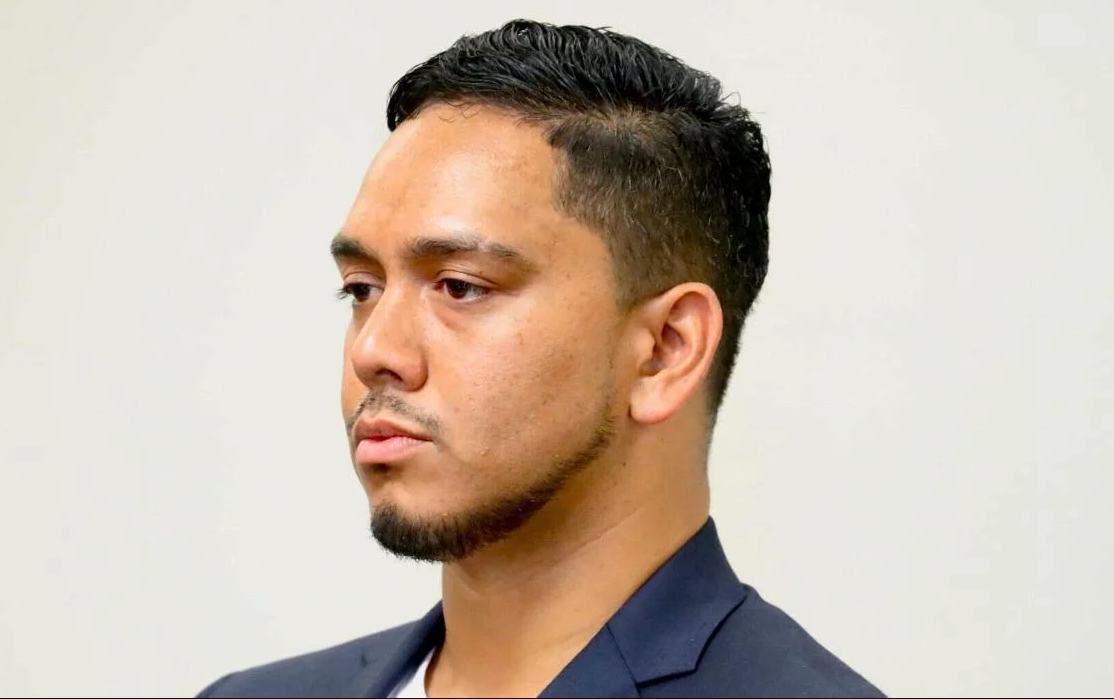
One of the men accused of defacing a Pride-flag themed crosswalk in Auckland’s central business district has pleaded guilty to the crime and was ordered to pay a huge fine in restitution, RNZ reported.
The Progress Pride Flag-themed crosswalk on Karangahape Road in the heart of Auckland’s queer neighborhood was painted over in the middle of the night on March 27, by vandals who were recorded dumping white paint over it and mopping it over the crosswalk to cover it nearly completely. Much of the white paint was subsequently washed off by rain and traffic.
Video of the vandalism was shared to the Tiktok account @aucklandcitynight00. Police quickly identified the vandals by recognizing unique markings on their truck.
It was the second rainbow crosswalk to be vandalized that week, after vandals targeted a crosswalk in Gisborne, about 300 miles southwest of Auckland, two days earlier. Police were able to apprehend several suspects in that incident.
31-year-old Ford O’Connor appeared in court April 15 to plead guilty to the Auckland vandalism and was ordered to pay NZ$16,093 (approximately $9,475) in reparations.
Both sets of vandals were affiliated with the extremist Divinity Church, a Christian cult led by Brian Tamaki with around 1,700 members, according to the latest New Zealand Census. Tamaki preaches a far-right political ideology alongside anti-LGBTQ messages.
Tamaki later told a press conference that O’Connor is married to his granddaughter. Tamaki had previously denied his Church’s involvement in the Auckland vandalism.
Tamaki has also claimed that the vandalism of the Pride crosswalks was not a hate crime, and that he supported the vandalism as an act of protest against “rainbow washing” at the taxpayer’s expense.
New Zealand does not have hate crime laws that impose stiffer penalties on hate-motivated crimes, although police do track them. The vandalism had been tracked as a hate crime.
The church has recently taken particular issue with drag queen story events at public libraries, leading at least one library to cancel an event due to security concerns raised by the threat of Divinity Church protesters.
Auckland Transport says the Pride flag crosswalk is expected to be restored within the month.
-

 South America3 days ago
South America3 days agoDaniel Zamudio murderer’s parole request denied
-

 Maryland4 days ago
Maryland4 days agoMontgomery County police chief discusses arrest of trans student charged with planned school shooting
-

 Politics5 days ago
Politics5 days agoCourt records raise concerns about right-wing TikTok investor’s influence
-

 Commentary4 days ago
Commentary4 days agoWorld ‘isn’t much different today’





